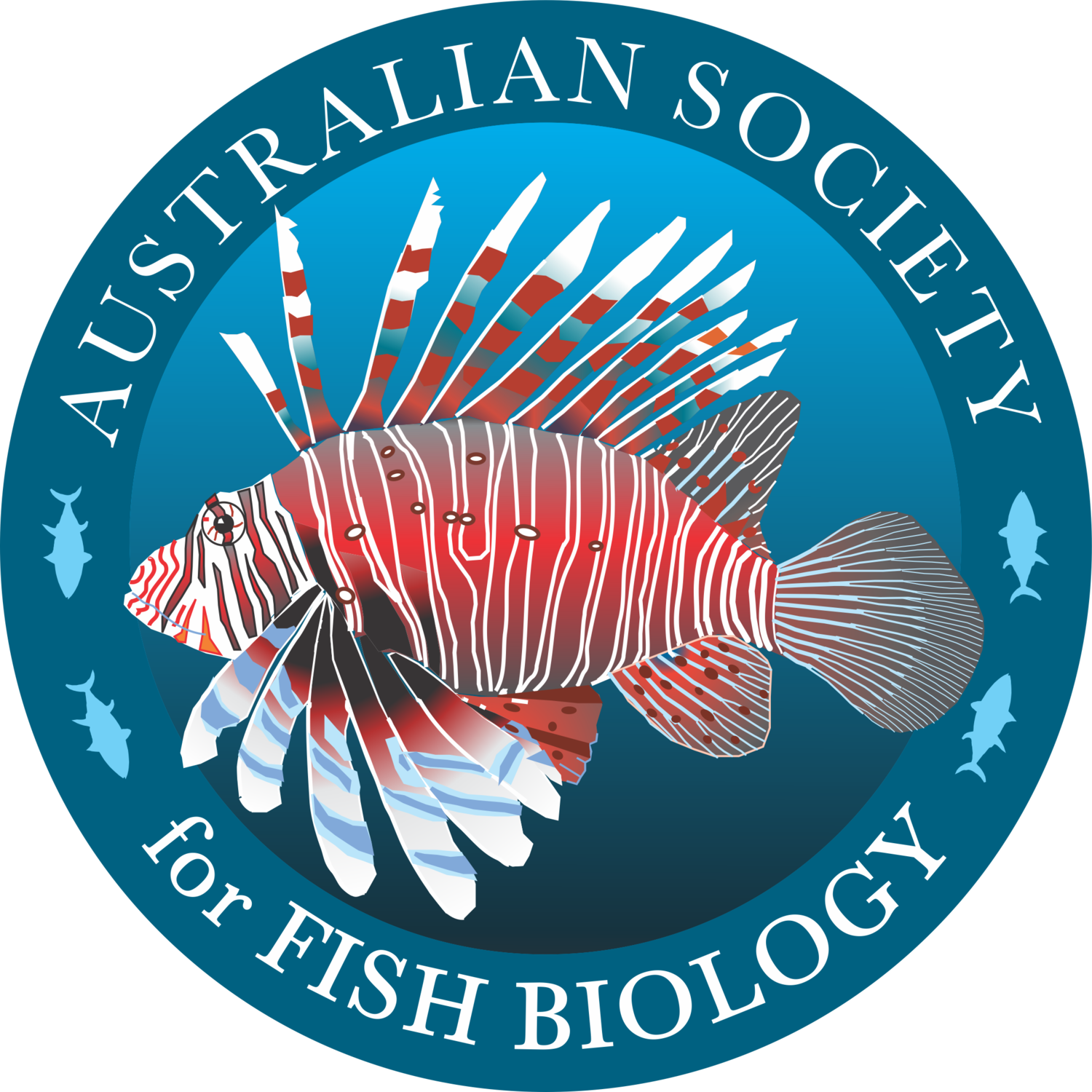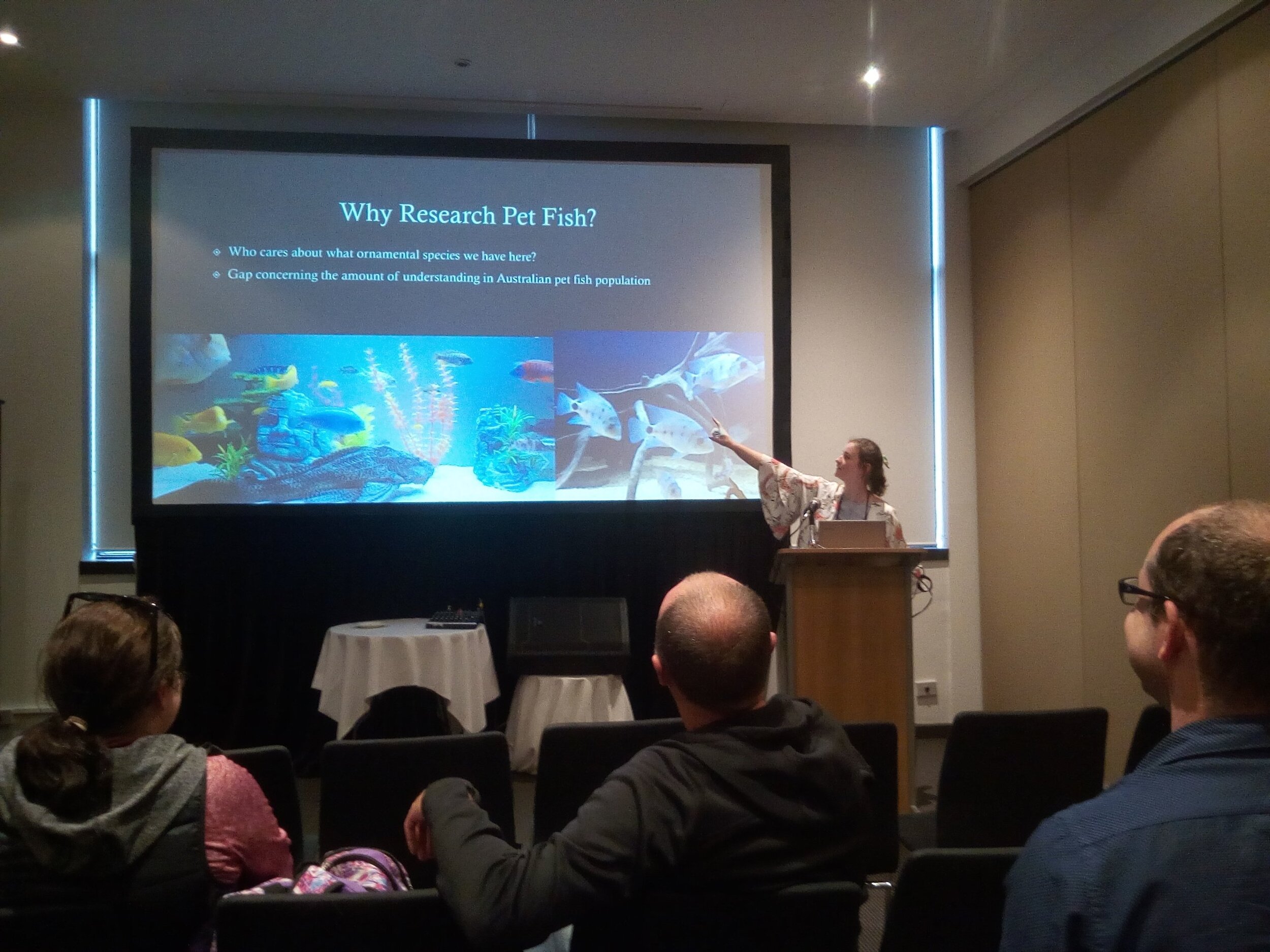On the line with… Mariah Millington
Mariah Millington is a PhD candidate at Griffith University’s Australian Rivers Institute. We spoke to her about her love of toadfish, the ecological perils of ornamental fish, and the importance of getting out of the office.
Mariah Millington is a final-year PhD student at Griffith University. © Nicole Millington
Mariah, what first sparked your interest in fish?
My ecology undergrad at Griffith Uni was very much plant-focussed, with a sprinkling of mammal trapping, insect work, and river systems mixed in. Fish were something we only looked at twice, once in some very entertaining lectures by Harry Balcombe (who is my primary PhD supervisor now) and in a fieldwork course out on the eastern part of Moreton Bay, off Stradbroke Island. We were studying toadfish, a species anglers consider "rats of the ocean", so not the bright and colourful fish you would think would captivate someone.
Mangroves are home to a nutritious buffet of marine invertebrates that toadfish love, but are only accessible during high tide. We were catching toadfish as they swam in on the tidal excursion front, basically the leading edge of high tide, to see if there was evidence of intraspecific competition as they fought to access this smorgasbord first. And there was! Adults were jostling juveniles out of the way, pushing them to the back of the pack.
I found the whole project fascinating and used my special topic elective to see if the same pattern was also present on the western part of Moreton Bay, in both the incoming and outgoing tides. We also looked at toadfish diet through gut content analysis, as a measure of competition success. These hands-on experiences out in the field, combined with the lab work, was really what cemented ichthyology as the right choice for me.
© Rebekah Grieger
What are you currently studying?
I'm in the final year of my PhD at Griffith Uni, still studying overlooked and undervalued fish, but this time in freshwater! Ornamental fish are often disregarded as a threat to ecosystems; they are often perceived as disposable items given as prizes at carnivals, used as decorations at weddings, or handed out as advertising campaigns by companies, rather than as the potentially invasive animals they are. We've already seen a number of pet fish species invade and establish in Queensland, such as the recent naturalisation of jaguar cichlids in Mackay, due to owners dumping their unwanted fish into waterways.
My PhD is looking at compiling a comprehensive list of ornamental fish traded online and instore in Queensland. We will then use this list to identify, through risk assessments, which species are the greatest threat to our aquatic ecosystems if released, and strengthen our legislation to prohibit their trade. It's an exciting project that has really pushed my research skills and connected me to scientists around the world.
© Bonnie Holmes
What has been your most memorable experience outside the office?
My PhD has been mostly desk-based, with fieldwork postponed thanks to current restrictions, so I'm really looking forward to getting out there and surveying pet stores around Queensland. My most memorable moment so far was presenting my research at the International Conference on Aquatic Invasive Species (ICAIS) in Montreal, Canada, last October. I met so many invasive researchers whom I look up to, and Canada is absolutely stunning at that time of year. My partner Blake also proposed while we were there, which made the trip extra special!
What do you enjoy doing outside of science?
Being in the desk-based part of my PhD, it has been really important for me to stay off technology on my days off and get outdoors. I really enjoy hiking, especially around Lamington National Park, where there are plenty of waterfalls and rainforest spots to explore. When quarantining first started, and I couldn't go outside as much as I used to, I fell in love with embroidery. I find it really meditative and I enjoy being able to make gifts for friends and family. I've made a number of fishy pieces already, including ones where I asked my bridesmaids and maid of honour to be in my wedding.
© Mara Méndez
You are currently knee-deep in your PhD research. What advice would you give to new postgrad students?
I think it's really important to prioritise your mental and physical health from the very beginning. Make sure you set yourself time each week to see friends and family, to get outdoors (fieldwork doesn't count!), and that you find some kind of physical activity that you enjoy and can commit to. It could be an afternoon walk each evening, kayaking with friends, yoga, anything that connects you with other people and gets you moving.
A PhD can be a very stressful period of your life, especially if you are the first in your family or friendship group, and having someone you can talk to about the challenges, your successes, and everything in between is important. Burnout is a real part of such a short-term project like a PhD, so prioritise yourself.
Follow Mariah on Twitter @letminn0w
"On the line" is a regular series featuring interviews with ASFB members.




